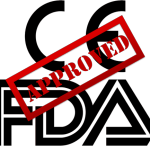The “regulatory affairs” section comprises over 200 tasks that need to be completed during the development and approval of medical devices.
Here, you will find an overview of the most essential content so that you can get your device approved quickly.
Content
On this page, you will find articles on the following topics:
- What regulatory affairs is
- Regulatory requirements
- Authorization and documentation
- Authorities, institutions, and associations
- Further topics of regulatory affairs
1. What regulatory affairs is
Regulatory affairs comprises the processes and activities that ensure that medical devices meet the regulatory requirements of the countries where they are sold. This includes
- obtaining the necessary approvals from the regulatory authorities,
- compliance with applicable regulations and standards, and
- maintaining conformity throughout the entire product life cycle until decommissioning.
The tasks of regulatory affairs also include monitoring changes to regulations and standards and communicating these changes to stakeholders within the company to ensure continuous compliance.
Regulatory affairs thus plays a crucial role in ensuring that medical devices are safe, effective, and comply with legal requirements.
Further information
Refer also to the article on regulatory affairs managers’ tasks, competencies, and earning potential. This includes the task of developing a regulatory strategy.
2. Regulatory requirements
a) Germany
| Laws |
Medical Devices Law (no longer valid)
Medical Devices Implementation Act MPDG |
| National regulations |
Medical Device Operator Ordinance (Medizinprodukte-Betreiberverordnung – MPBetreibV)
Medical Device User Notification and Information Ordinance (Medizinprodukte-Anwendermelde- und Informationsverordnung – MPAMIV) |
b) Europe
c) USA
d) Other markets
3. Approval and documentation
a) Approval
Find more information on international approval
b) Qualification and classification (How should my device be classified?)
c) Technical documentation (What do I need to document for each device?)
d) Quality management (What should your company fulfill?)
Quality management is not usually the responsibility of regulatory affairs. Nevertheless, we have listed some important articles for you.
e) Regulatory Roles
There are several expert articles on regulatory roles:
4. Authorities, institutions, and associations
a) Germany
b) Europe
c) International
| IMDRF: International Medical Device Regulators Forum |
5. Regulatory affairs: Further topics
The tasks of Regulatory Affairs also include finding and eliminating deviations and non-conformities. The (emergency) elimination is called remediation.
Note the advantages and disadvantages of Regulatory Information Management Systems (RIMS) and their role in manufacturers’ digital transformation.
Part of the tasks of regulatory affairs is regulatory intelligence.
Do you need support?
Do you still have questions, for example, about the approval of your devices? Then, take advantage of our free micro-consulting service.
If you would like support in developing and “approving” your medical devices in compliance with the law, contact us right away. The Johner Institute team will be happy to help!
Because the quality of medical device sterilization is crucial to the safety of these medical devices, the selection and validation of the sterilization process are regularly subject to audits and inspections. This article provides a quick overview of the various sterilization processes and regulatory requirements for medical devices and offers best practices for successfully passing…
Details
Decision Support Systems are also increasingly being used in medicine. If they are medical devices, they must meet the legal requirements (e.g., the general safety and performance requirements). The hype surrounding Artificial Intelligence, in particular Machine Learning, and users such as Watson are raising hopes for the performance of Decision Support Systems. This article presents…
Details
Manufacturers who use machine learning (ML) in their medical devices or IVDs must comply with numerous regulatory requirements. This article provides an overview of the most important regulations and best practices for implementation. It saves you the trouble of researching and reading hundreds of pages and helps you prepare perfectly for your next audit.
Details
The MDR contains the Classification Rule 11. This rule is especially for software. The Rule 11 has serious implications: it bears the potential to further undermine Europe’s innovation capacity. Manufacturers should familiarize themselves with the MDCG‘s interpretation to avoid misclassifying software and to be able to follow the reasoning of notified bodies and authorities. This article…
Details
On December 16, 2025, the European Commission published its proposal for revising the MDR and IVDR , already titled MDR 2.0 and IVDR 2.0 respectively. But will manufacturers really benefit from it? This article provides the answers.
We frequently get asked, “Do you also offer Computerized Systems Validation?” One of the reasons for the interest is certainly: Authorities and notified bodies increasingly address the Computerized Systems Validation (CSV) in audits. This article introduces regulatory requirements regarding “Computerized Systems Validation” and provides guidance on how you can best meet these requirements.
Details
The EU plans to replace the existing Directive 2006/66/EC with the new EU Regulation on batteries and waste batteries (“Battery Regulation”). This article clarifies,
Details
University institutions in particular regularly publish medical software as open source. This raises doubts as to whether this open-source software counts as a medical device and what regulatory and (product) liability risks are involved. This article provides a quick overview.
Details
Combination products consist of the combination of a medical device and a medicinal product. Since both medical device and medicinal product law could be applicable here, there are some special features that must be taken into account for products of this type. In this article, you learn more about
Details
Is there a duty for medical device manufacturers for validating ChatGPT and other LLMs that they use in the development, production, approval, and monitoring of their products? If so, how can this be achieved with models that deliver non-deterministic results? This technical article provides answers to these questions and to the question of what your…
Details
